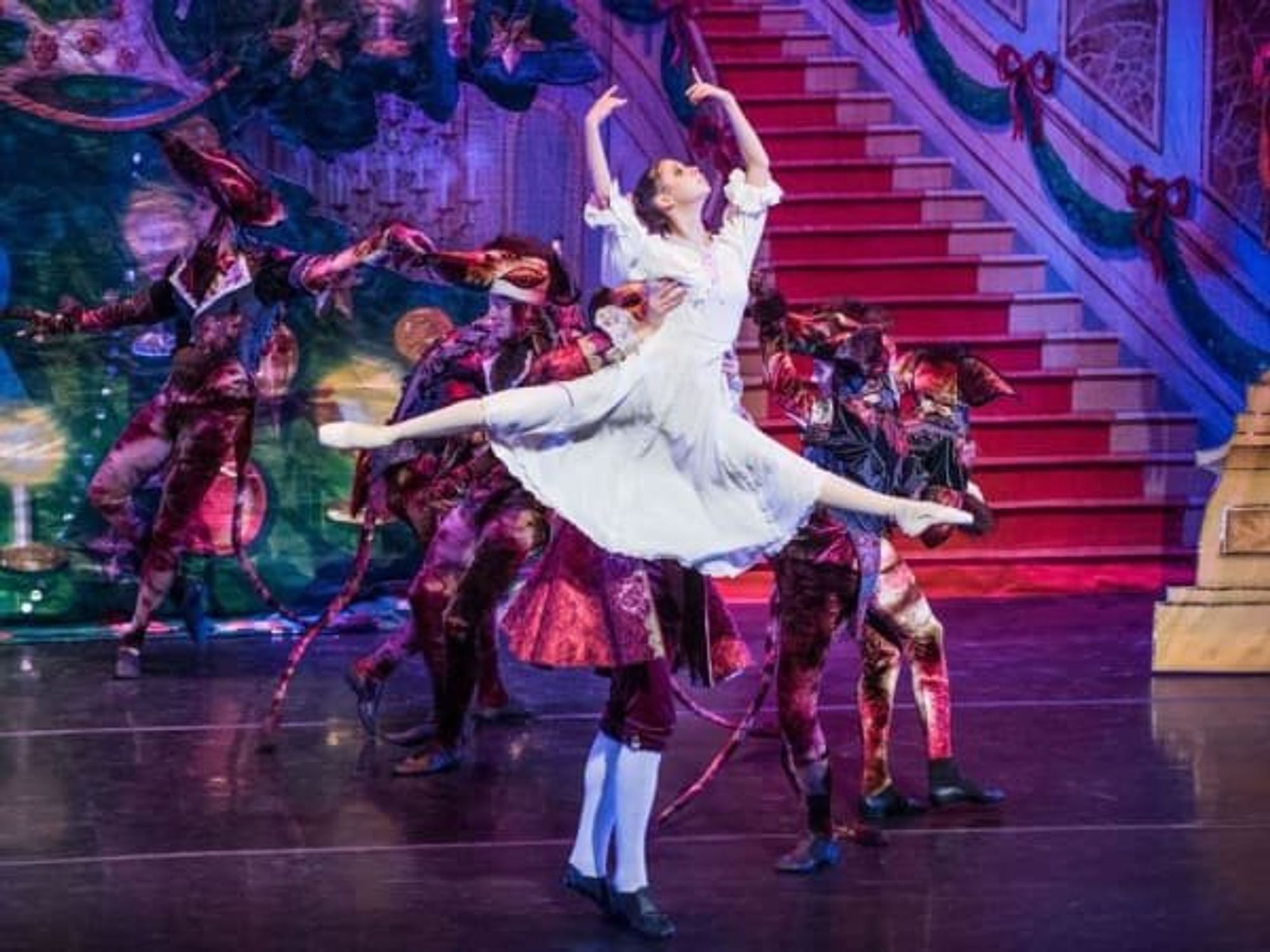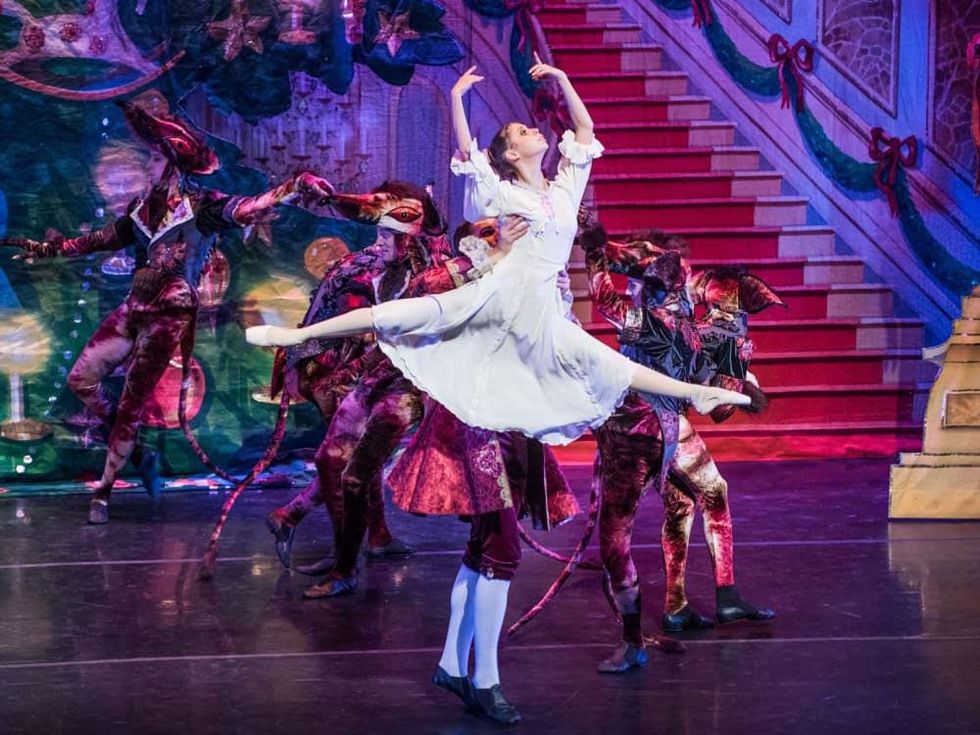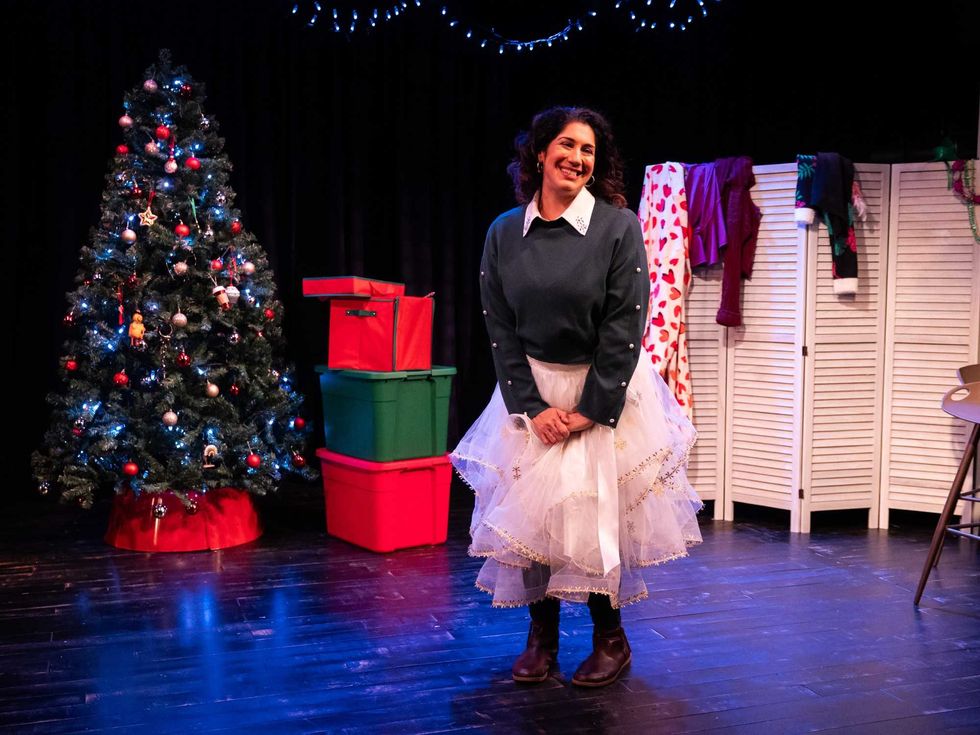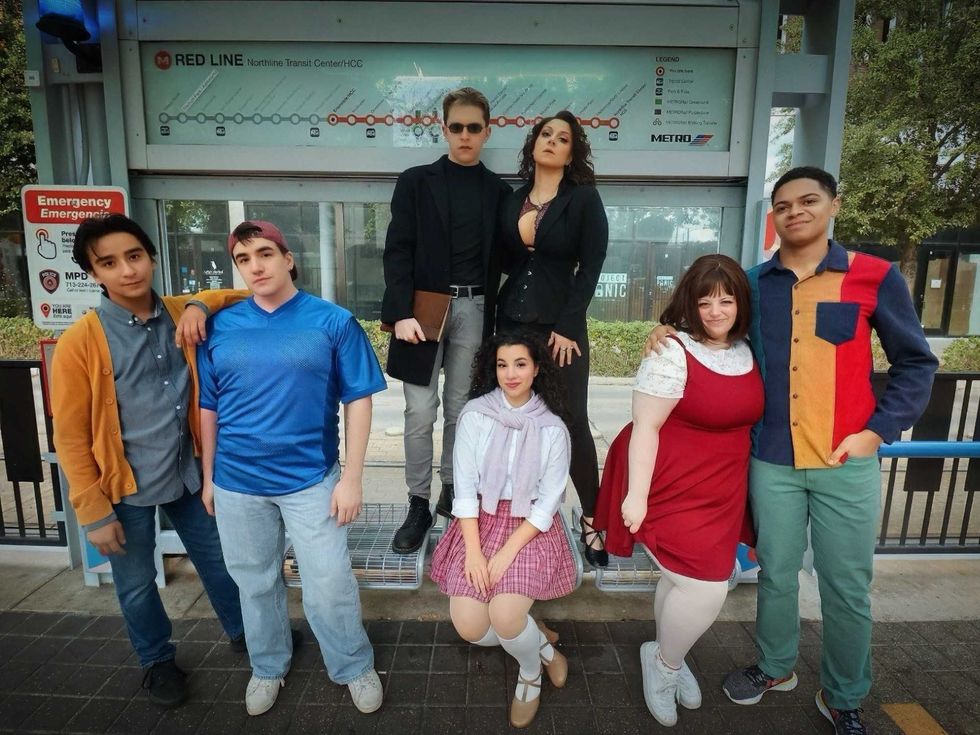Jive Time
Trying to explain the feel-good phenomenon of Mamma Mia !: "Stupid, but Great"?
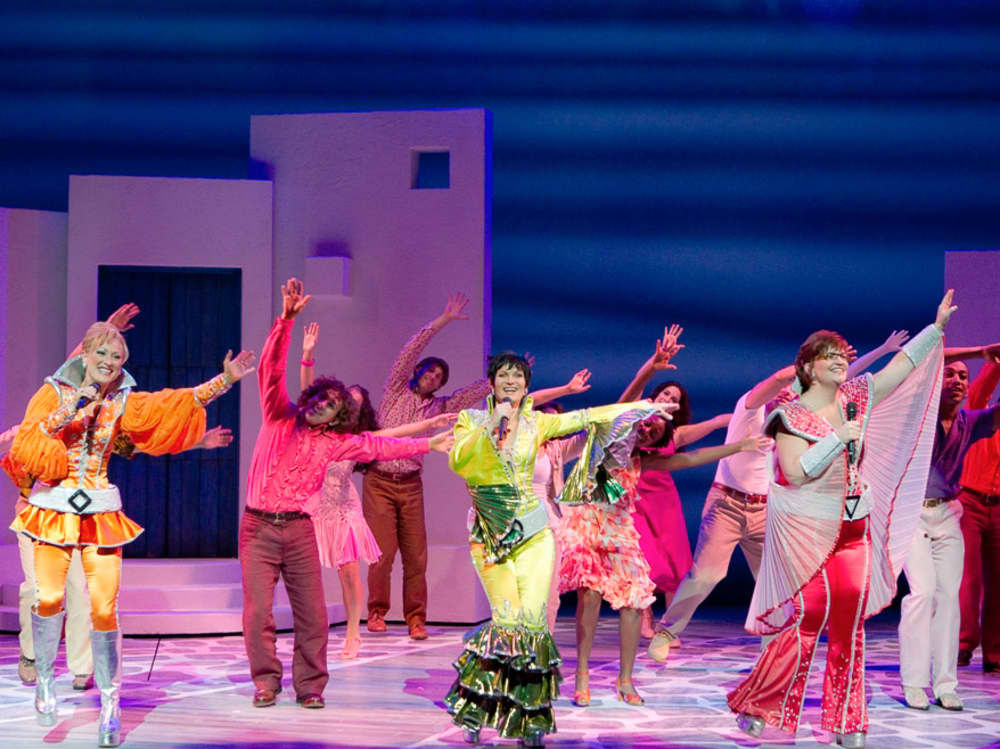 A scene from "Mamma Mia"Photo by Joan Marcus
A scene from "Mamma Mia"Photo by Joan Marcus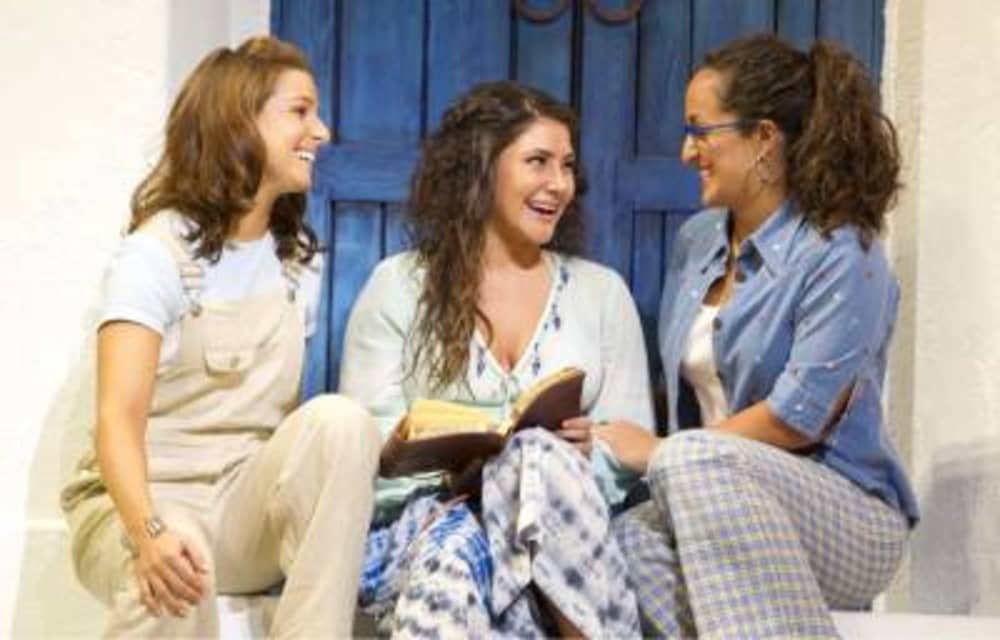 Chloe Tucker, center, in a scene from "Mamma Mia."
Chloe Tucker, center, in a scene from "Mamma Mia."
“Stupid, but great,” was how the woman sitting in front of me Tuesday night described the experience of Mamma Mia! at The Hobby Center, which runs through May 15. Fresh from her first Brazilian Blowout, her hair looked fabulous and clearly she was having a wonderful time with her female friends.
The mood was high with hundreds of heads bouncing in unison as ABBA’s extensive pop oeuvre unfolded before us.
My head bounced as well, but during the second act I was also contemplating whether or not I agreed with the woman. The show isn’t necessarily “great,” in the sense that West Side Story, for example, is a “great” musical, but it definitely is a great time.
And I was delighted to discover that it’s hardly stupid. Playwright Catherine Johnson has skillfully strung together 22 seemingly disparate songs into a heartwarming and often hilarious narrative, which is no small feat.
Sometimes going to the theater involves making sense of a phenomenon, and Mamma Mia! has certainly earned that label. According to web sources, so far the show has been translated into German, Norwegian, Japanese, dutch, flemish, Korean, Spanish, Swedish, russian, French, Danish, Italian, Portuguese and Indonesian.
While the world waits for the Tagalog and Hungarian productions, and more, it’s intriguing to consider why so many people continue to flock to this show.
Before it began, in the lobby I noticed a group of teenagers planning their souvenir-stand purchases. Would it be a T-shirt, magnet, or pink-feather boa? I thought back to when I was that age, remembering how I would have considered the mementos just as important as the performance, and I laughed.
More importantly, I realized that the musicals of my adolescence provided a very different, and perhaps more complicated experience from today’s average show. My “formative four” were Sondheim’s Company and Follies, Marvin Hamlisch’s A Chorus Line (with a stunning, if not radical book by James Kirkwood, Jr., and Nicholas Dante), and Bob Fosse and Kander & Ebb’s Chicago. All of these are deeply cynical works, reflective of a 1970s American mindset.
The contrast between the stories and their music creates a sense of irony which the viewer is left to sort out. These works managed to make you squirm in your seat, even if the tunes were soothing.
There is no irony in Mamma Mia!, but Johnson has retained a theatrical formula that makes you think you’re having a more profound experience. It is also aware of its own occasional tackiness.
“We must warn persons of a nervous disposition,” said a serious announcer before the overture began, “that white Spandex pants and platform boots are worn in this production.”
I marveled at the sophisticated range of stage references in the numerous scenes. The first act opens on some tiny Greek island, the day before a wedding is to happen. It’s kind of Suddenly, Last Summer in better days, and a rousing interpretation of Money, Money, Money becomes a kind of succinct cantata with ancient Greek chorus, Brechtian in its staging (perhaps, a sort of MTV version of The Rise and Fall of The City of Mahagonny).
Men and women divide over the preparations for the wedding, and later when Stag party collides with hen night, the first act finishes with a Rite of Spring bacchanal that will forever change the way you imagine the back-story of ABBA’s Voulez-Vous. Young Sophie Sheridan (sung here with conviction by the charming Chloe Tucker) has a Magritte-like dream sequence later, and The Winner Takes It All becomes a nearly expressionist chamber drama as delivered by Kaye Tuckerman.
The show’s best attribute is that a context is provided for the spectacle, and the spectacle isn’t a constant onslaught to the viewer. The narrative also subverts predictability. Here, it’s the parents who are fickle and impetuous, and the kids who set things right. “I don’t care if you slept with hundreds of men,” says Sophie with defiance, “you’re my Mom, and I love you!”
Mary Callanan as Rosie is the goofy, big-boned gal who brings the most extreme physical comedy to Mamma Mia! Her rendition of Take A Chance on Me, sung amidst rows of empty chairs before the wedding ceremony, is a certain high point in the second act. The show seems to drizzle off comfortably into I Have a Dream rather than a second-act showstopper.
That is, until you witness the “encore,” in which codpieces and bell-bottoms, in brilliant satin-finish polyesters, figure prominently. “You can dance, you can jive, having the time of your life,” as the song goes.
